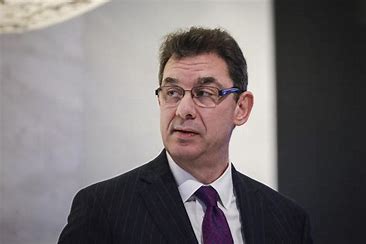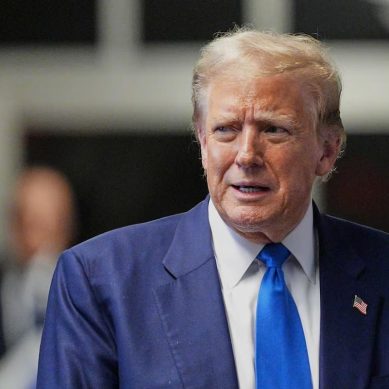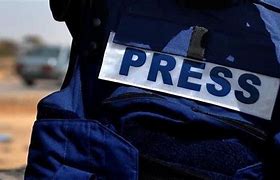
One of the most significant cultural transformations of the last two years has been the newfound glorification of the pharmaceutical industry.
This is an industry that has been plagued by decades of fraud, corruption and criminality managed to quickly rebrand itself as the saviour of mankind during the Covid-19 crisis.
But nothing inherently changed. Big Pharma still values shareholders’ profits more than people’s lives. The regulatory agencies still operate as revolving doors to the pharmaceutical giants they are said to regulate.
Big Pharma still dominates lobbying efforts in Washington DC, and spends billions each year advertising pharmaceutical products.
Despite the notorious corrupt nature of the pharmaceutical industry, Pfizer’s CEO Albert Bourla claimed during a November 2021 interview that a small group of “medical professionals” who are intentionally circulating “misinformation” critical of the Pfizer vaccine narrative are “criminals.”
Bourla seemed to have forgotten about the history of his own company. In 1992, Pfizer agreed to pay between $165 million and $215 million to settle lawsuits arising from the fracturing of its Bjork-Shiley Convexo-Concave heart valve, which at the time had resulted in nearly 300 deaths, and by 2012 had resulted in 663 deaths.
In 1994, Pfizer agreed to pay $10.75 million to settle Justice Department claims that the company lied to get federal approval for a mechanical heart valve that has fractured, killing hundreds of patients worldwide.
Under the settlement, Pfizer also agreed to pay $9.25 million in coming years to monitor patients who received the device at Veterans Administration hospitals or pay for its removal.
The deal was criticized by consumer rights activists who urged government officials to bring criminal charges and lobbied for a steeper civil penalty for the multibillion-dollar company that had covered up safety concerns even as the device was killing patients.
In 1996, Pfizer administered an experimental drug during a clinical trial on 200 children in Nigeria but never told the parents that their children were the subjects of an experiment. Eleven of the children died, and many others suffered side effects such as brain damage and organ failure.
A report by Nigeria’s health ministry concluded the experiment was “an illegal trial of an unregistered drug,” a “clear case of exploitation of the ignorant” and a violation of Nigerian and international law. Pfizer did not obtain consent or inform the patients that they were the subjects of an experiment, not the recipients of an approved drug.
In 2002, Pfizer agreed to pay $49 million to settle allegations that the drug company defrauded the federal government and 40 states by charging too much for its cholesterol treatment Lipitor. Lipitor had sales of $6.45 billion in 2001.
In 2004, Pfizer agreed to plead guilty to two felonies and paid $430 million in penalties to settle charges that it fraudulently promoted the drug Neurontin for unapproved uses.
Pfizer agreed that it aggressively marketed the epilepsy drug illicitly for unrelated conditions, including bipolar disorder, pain, migraine headaches and drug and alcohol withdrawal. Pfizer’s tactics included planting company operatives in the audience at medical education events and bribing doctors with luxury trips.
In 2008, the New York Times published an article entitled “Experts Conclude Pfizer Manipulated Studies.” Pfizer delayed the publication of negative studies, spun negative data to place it in a more positive light and controlled the flow of clinical research data to promote its epilepsy drug Neurontin.
Pfizer discontinued its marketing programme for Neurontin in 2004 after the drug became available as a generic. That same year, the company paid $430 million to settle federal criminal and civil claims that one of its subsidiaries had promoted the drug for unapproved uses.
In 2009, Pfizer was fined $2.3 billion, then the largest healthcare fraud settlement and the largest criminal fine ever imposed in the US Pfizer pleaded guilty to misbranding the painkiller Bextra with “the intent to defraud or mislead,” promoting the drug to treat acute pain at dosages the FDA had previously deemed dangerously high.
The government alleged that Pfizer had paid kickbacks to compliant doctors and also promoted three other drugs illegally: the antipsychotic Geodon, an antibiotic Zyvox and the antiepileptic drug Lyrica.
In 2009, Pfizer paid $750 million to settle 35,000 claims that its drug, Rezulin, was responsible for 63 deaths and dozens of liver failures. Rezulin’s withdrawal from the US market on March 21, 2000, followed negotiations between the drug’s manufacturer and the FDA.
Senior FDA officials had long stood behind the drug despite a mounting death toll and Rezulin’s absence of proven life-saving benefits. The position of the FDA officials stood in contrast to their counterparts in Britain, where Rezulin was removed effectively on December 1, 1997.
In 2010, Pfizer was ordered to pay $142.1 million in damages for violating federal anti-racketeering law by its fraudulent sale and marketing of Neurontin for uses not approved by the FDA. The jury found that Pfizer’s marketing of Neurontin violated both the Racketeer Influenced and Corrupt Organizations Act and California’s Unfair Competition Law.
In 2010, the New York Times published an article entitled “Pfizer Gives Details on Payments to Doctors.” Pfizer admitted that it paid about $20 million to 4,500 doctors and other medical professionals for consulting and speaking on its behalf in the last six months of 2009.
Pfizer also paid $15.3 million to 250 academic medical centres and other research groups for clinical trials in the same period. The disclosures were required by an agreement that the company signed to settle a federal investigation into the illegal promotion of drugs for off-label uses.
In 2010, Blue Cross Blue Shield filed a lawsuit against Pfizer, accusing the pharmaceutical giant of illegally bribing 5,000 doctors with lavish Caribbean vacations, golf games, massages and other recreational activities to convince doctors to use Bextra for off-label use.
In 2010, leaked cables between Pfizer and US officials in Nigeria showed that Pfizer had hired investigators to unearth evidence of corruption against the Nigerian attorney-general to blackmail him to drop legal action over the controversial 1996 Trovan trial involving children with meningitis.
In 2009, Pfizer agreed to pay $75 million to the families harmed during the 1996 drug trial. Still, the cables suggest that the US drug giant was looking for blackmail to get the Nigerian attorney-general to drop the $6 billion federal suit against Pfizer.
The leaks showed that Pfizer’s investigators were passing ‘damaging’ information to the local media and threatening the attorney-general that much more damaging information would come out if he did not drop the suit. The $6 billion lawsuit was dropped in 2009.
In 2012, the Securities and Exchange Commission charged Pfizer Inc with violating the Foreign Corrupt Practices Act when its subsidiaries bribed doctors and other healthcare professionals employed by foreign governments in Bulgaria, China, Croatia, Czech Republic, Italy, Kazakhstan, Russia and Serbia to win business.
According to the Securities and Exchange Commission, employees of Pfizer’s subsidiaries authorised and made cash payments and provided other incentives to bribe government doctors to utilise Pfizer products.











